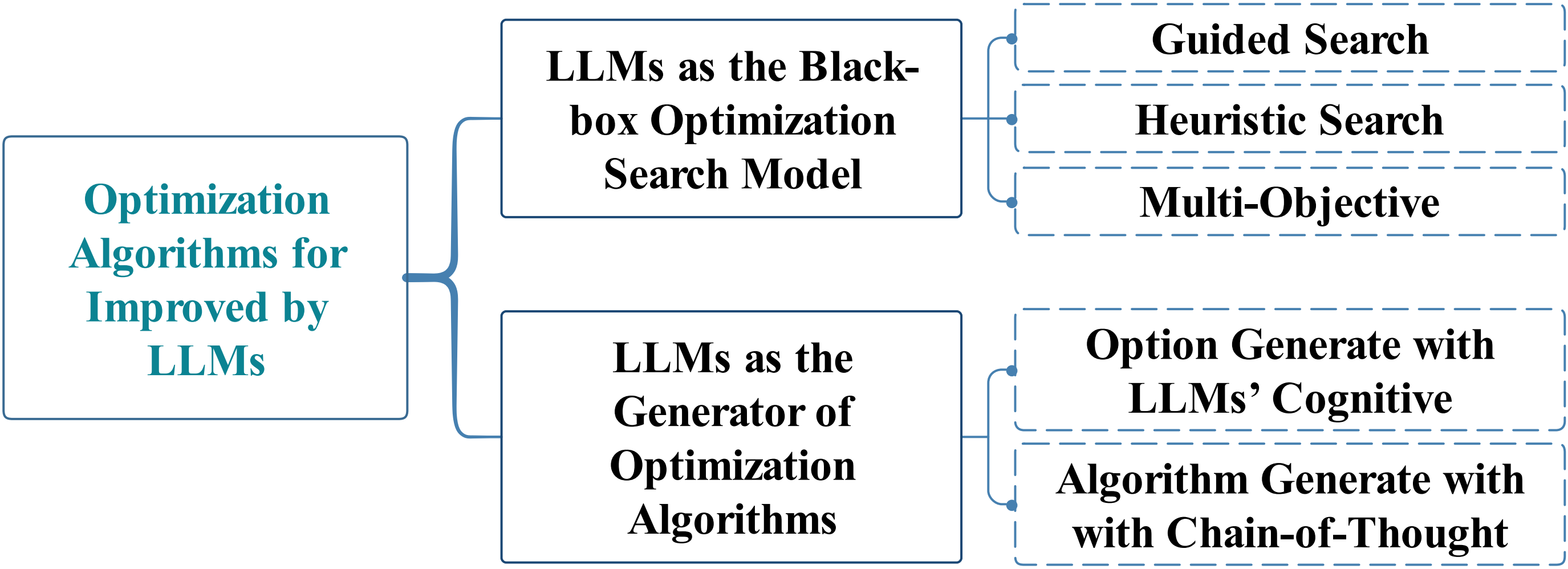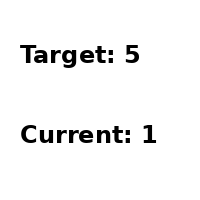Efficient Sequential Decision Making with Large Language Models
2406.12125

0
0

Abstract
This paper focuses on extending the success of large language models (LLMs) to sequential decision making. Existing efforts either (i) re-train or finetune LLMs for decision making, or (ii) design prompts for pretrained LLMs. The former approach suffers from the computational burden of gradient updates, and the latter approach does not show promising results. In this paper, we propose a new approach that leverages online model selection algorithms to efficiently incorporate LLMs agents into sequential decision making. Statistically, our approach significantly outperforms both traditional decision making algorithms and vanilla LLM agents. Computationally, our approach avoids the need for expensive gradient updates of LLMs, and throughout the decision making process, it requires only a small number of LLM calls. We conduct extensive experiments to verify the effectiveness of our proposed approach. As an example, on a large-scale Amazon dataset, our approach achieves more than a $6$x performance gain over baselines while calling LLMs in only $1.5$% of the time steps.
Create account to get full access
Overview
- This paper explores techniques for efficient sequential decision-making using large language models (LLMs).
- The researchers propose a framework called DELLMA (Decision making with Large Language Models) that combines LLMs with optimization algorithms to enable adaptive decision-making under uncertainty.
- The paper demonstrates how DELLMA can be applied to challenging real-world problems like adaptive reinforcement learning planning and reinforcement learning problem-solving.
Plain English Explanation
The paper discusses a new approach for using large language models (LLMs) - the powerful AI systems that can understand and generate human-like text - to help make complex decisions. The key idea is to combine LLMs with optimization algorithms, which are techniques for finding the best possible solution to a problem.
The researchers call their framework DELLMA, which stands for "Decision making with Large Language Models." The basic premise is that LLMs can be used to model the uncertainty and complexity of real-world decision-making scenarios, while optimization algorithms can then be applied to find the best course of action.
For example, imagine you're a self-driving car navigating busy city streets. There are all kinds of unpredictable factors - other drivers, pedestrians, weather conditions, etc. - that make it challenging to decide the optimal path. DELLMA could use an LLM to understand the context and generate potential actions, while an optimization algorithm selects the safest and most efficient route.
The paper demonstrates how DELLMA can be applied to two challenging AI problems: adaptive reinforcement learning planning and reinforcement learning problem-solving. In these domains, the combination of LLMs and optimization techniques allows the AI system to adapt and make decisions in complex, uncertain environments.
Technical Explanation
The paper introduces the DELLMA framework, which combines large language models (LLMs) with optimization algorithms to enable efficient sequential decision-making under uncertainty. The key components of DELLMA are:
- Large Language Model: The LLM is used to model the complex, uncertain environment and generate potential actions or decisions.
- Optimization Algorithm: An optimization algorithm, such as model-based reinforcement learning, is then applied to the LLM-generated options to select the optimal course of action.
The paper demonstrates the effectiveness of DELLMA on two challenging AI problems:
- Adaptive Reinforcement Learning Planning: The researchers show how DELLMA can be used for adaptive reinforcement learning planning, where the system must learn to navigate complex environments and adapt its decisions based on changing conditions.
- Reinforcement Learning Problem-Solving: The paper also explores how DELLMA can be applied to reinforcement learning problem-solving, where the AI system must learn to solve a wide range of problems by interacting with its environment and receiving feedback.
The key insights from the paper are:
- LLMs can effectively model the uncertainty and complexity of real-world decision-making scenarios.
- Combining LLMs with optimization algorithms enables the AI system to adaptively select the best course of action in the face of uncertainty.
- The DELLMA framework demonstrates strong performance on challenging AI tasks, outperforming previous approaches.
Critical Analysis
The paper presents a promising approach for efficient sequential decision-making using large language models, but it also acknowledges several limitations and areas for further research:
- Scalability: While the DELLMA framework shows strong performance on the tested problems, the researchers note that scaling the approach to handle larger, more complex decision-making scenarios may be challenging and require further innovations.
- Interpretability: The use of LLMs in the decision-making process can make the system's reasoning less transparent, which may be a concern in applications where explainability is important, such as fine-tuning large vision-language models for sensitive domains.
- Robustness: The paper does not extensively explore the robustness of DELLMA to distributional shift or adversarial attacks, which could be an important consideration for real-world deployment.
Overall, the DELLMA framework represents an exciting advance in the field of sequential decision-making, but further research will be needed to address these limitations and ensure the approach is widely applicable and reliable.
Conclusion
This paper introduces the DELLMA framework, which combines large language models and optimization algorithms to enable efficient sequential decision-making under uncertainty. The researchers demonstrate the effectiveness of DELLMA on two challenging AI problems: adaptive reinforcement learning planning and reinforcement learning problem-solving.
The key contribution of the paper is the DELLMA approach, which leverages the powerful modeling capabilities of LLMs and the optimization power of algorithms to make complex decisions in uncertain environments. This work represents an important step forward in the field of AI decision-making and could have significant implications for a wide range of real-world applications, from autonomous vehicles to decision support systems.
As the capabilities of large language models continue to advance, the DELLMA framework provides a promising avenue for exploring how these powerful AI systems can be combined with optimization techniques to tackle complex, sequential decision-making challenges.
This summary was produced with help from an AI and may contain inaccuracies - check out the links to read the original source documents!
Related Papers

When Large Language Model Meets Optimization
Sen Huang, Kaixiang Yang, Sheng Qi, Rui Wang

0
0
Optimization algorithms and large language models (LLMs) enhance decision-making in dynamic environments by integrating artificial intelligence with traditional techniques. LLMs, with extensive domain knowledge, facilitate intelligent modeling and strategic decision-making in optimization, while optimization algorithms refine LLM architectures and output quality. This synergy offers novel approaches for advancing general AI, addressing both the computational challenges of complex problems and the application of LLMs in practical scenarios. This review outlines the progress and potential of combining LLMs with optimization algorithms, providing insights for future research directions.
5/17/2024
💬
DeLLMa: A Framework for Decision Making Under Uncertainty with Large Language Models
Ollie Liu, Deqing Fu, Dani Yogatama, Willie Neiswanger

0
0
The potential of large language models (LLMs) as decision support tools is increasingly being explored in fields such as business, engineering, and medicine, which often face challenging tasks of decision-making under uncertainty. In this paper, we show that directly prompting LLMs on these types of decision-making problems can yield poor results, especially as the problem complexity increases. To aid in these tasks, we propose DeLLMa (Decision-making Large Language Model assistant), a framework designed to enhance decision-making accuracy in uncertain environments. DeLLMa involves a multi-step scaffolding procedure, drawing upon principles from decision theory and utility theory, to provide a rational and human-auditable decision-making process. We validate our framework on multiple realistic decision-making environments, demonstrating that DeLLMa can consistently enhance the decision-making performance of leading language models, and achieve up to a 40% increase in accuracy over competing methods.
6/11/2024

Fine-Tuning Large Vision-Language Models as Decision-Making Agents via Reinforcement Learning
Yuexiang Zhai, Hao Bai, Zipeng Lin, Jiayi Pan, Shengbang Tong, Yifei Zhou, Alane Suhr, Saining Xie, Yann LeCun, Yi Ma, Sergey Levine

0
0
Large vision-language models (VLMs) fine-tuned on specialized visual instruction-following data have exhibited impressive language reasoning capabilities across various scenarios. However, this fine-tuning paradigm may not be able to efficiently learn optimal decision-making agents in multi-step goal-directed tasks from interactive environments. To address this challenge, we propose an algorithmic framework that fine-tunes VLMs with reinforcement learning (RL). Specifically, our framework provides a task description and then prompts the VLM to generate chain-of-thought (CoT) reasoning, enabling the VLM to efficiently explore intermediate reasoning steps that lead to the final text-based action. Next, the open-ended text output is parsed into an executable action to interact with the environment to obtain goal-directed task rewards. Finally, our framework uses these task rewards to fine-tune the entire VLM with RL. Empirically, we demonstrate that our proposed framework enhances the decision-making capabilities of VLM agents across various tasks, enabling 7b models to outperform commercial models such as GPT4-V or Gemini. Furthermore, we find that CoT reasoning is a crucial component for performance improvement, as removing the CoT reasoning results in a significant decrease in the overall performance of our method.
5/20/2024
Reinforcement Learning Problem Solving with Large Language Models
Sina Gholamian, Domingo Huh

0
0
Large Language Models (LLMs) encapsulate an extensive amount of world knowledge, and this has enabled their application in various domains to improve the performance of a variety of Natural Language Processing (NLP) tasks. This has also facilitated a more accessible paradigm of conversation-based interactions between humans and AI systems to solve intended problems. However, one interesting avenue that shows untapped potential is the use of LLMs as Reinforcement Learning (RL) agents to enable conversational RL problem solving. Therefore, in this study, we explore the concept of formulating Markov Decision Process-based RL problems as LLM prompting tasks. We demonstrate how LLMs can be iteratively prompted to learn and optimize policies for specific RL tasks. In addition, we leverage the introduced prompting technique for episode simulation and Q-Learning, facilitated by LLMs. We then show the practicality of our approach through two detailed case studies for Research Scientist and Legal Matter Intake workflows.
4/30/2024